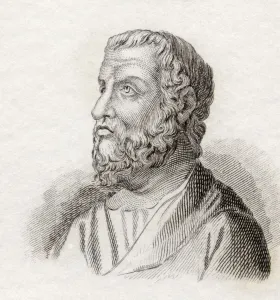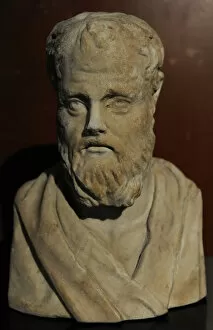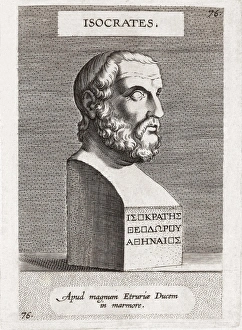Isocrates Collection
Isocrates, the renowned Athenian orator of ancient Greece, left an indelible mark on the world of rhetoric
All Professionally Made to Order for Quick Shipping
Isocrates, the renowned Athenian orator of ancient Greece, left an indelible mark on the world of rhetoric. With his eloquence and persuasive skills, he became one of the ten Attic orators, leaving a lasting legacy that still resonates today. The various depictions throughout history showcase his importance and influence. From busts to engravings, these artistic representations capture his intellectual prowess and commanding presence. One such portrayal is a detailed portrait found in the allegory of Rhetoric fresco, where Isocrates or Demosthenes stands as the ideal representative. In this allegorical masterpiece, Isocrates' significance as a rhetorician is emphasized further. The painting depicts him below this ideal representation, symbolizing his mastery over language and persuasion. It serves as a testament to his ability to captivate audiences with words alone. Just like Polyommatus butterflies fluttering around flowers in search of nectar, Isocrates' words had a similar effect on listeners. They were drawn to him for knowledge and wisdom like bees are attracted to sweet nectar. Born in 436 BC and passing away in 338 BC, Isocrates lived during a time when Athens was at its cultural zenith. His contributions to Greek society extended beyond mere speeches; he played an active role in shaping political thought and influencing public opinion. Even though centuries have passed since his time on Earth, Isocrates remains relevant today. His teachings continue to inspire aspiring orators worldwide who seek guidance from one of history's greatest rhetoricians. As we gaze upon the various depictions of this influential figure – whether it be through statues or paintings – we are reminded not only himself but also of the power that lies within effective communication.










